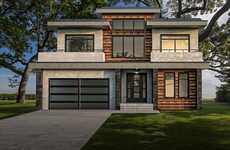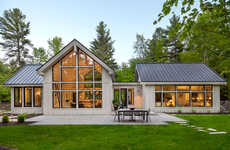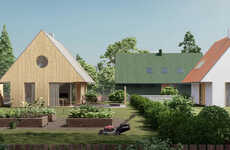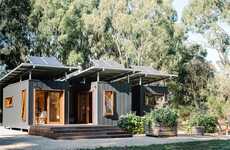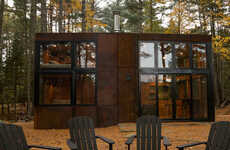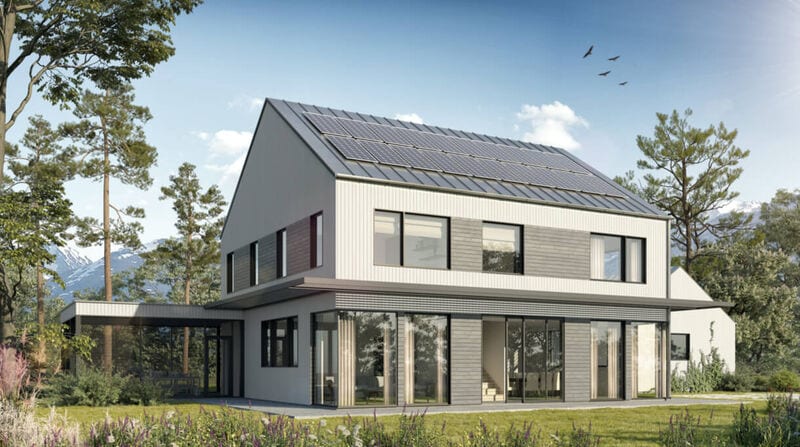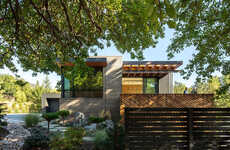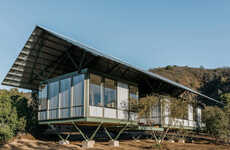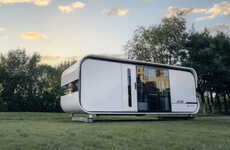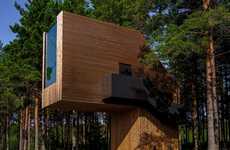
Plant Prefab Announces the Passive House-Certified LivingHomes
Plant Prefab announces a series of Passive House-certified modular home designs entitled LivingHomes that are simplistic and have a captivating aesthetic. All of these are designed in partnership with Richard Pedranti Architect, a design company based in Pennsylvania. The LivingHomes series is the brand's line of sustainable buildings that have net-zero options.
The company is keeping consumers in mind that are seeking a sustainable option that is built from the ground up. It is a 2 story home with 4 bedrooms and 3 bathrooms measuring out to be 2218 square feet and topped off with a gabled zinc roof. The estimated price is about $586,257 and about $928,407 for a completed house. In order to be certified as a Passive House, the modular designs must have a high degree of insulation, solar orientation requirements, high performing windows and doors, and much more.
Image Credit: Plant Prefab
The company is keeping consumers in mind that are seeking a sustainable option that is built from the ground up. It is a 2 story home with 4 bedrooms and 3 bathrooms measuring out to be 2218 square feet and topped off with a gabled zinc roof. The estimated price is about $586,257 and about $928,407 for a completed house. In order to be certified as a Passive House, the modular designs must have a high degree of insulation, solar orientation requirements, high performing windows and doors, and much more.
Image Credit: Plant Prefab
Trend Themes
1. Passive House-certified Modular Homes - The trend towards sustainable prefabricated homes that are designed to meet Passive House certification requirements presents an opportunity for disruptive innovation in the construction industry.
2. Net-zero Modular Home - The rising demand for net-zero homes presents an opportunity for disruptive innovation in the modular home industry as consumers seek sustainable, energy-efficient housing solutions.
3. Simplistic Modular Designs - The trend towards simplistic, modern modular homes presents an opportunity for disruptive innovation in the modular home industry as consumers prioritize aesthetics and design alongside sustainability and energy-efficiency.
Industry Implications
1. Modular Construction Industry - As demand for sustainable, energy-efficient housing grows, the modular construction industry has an opportunity to develop innovative solutions and disrupt traditional homebuilding methods.
2. Sustainable Building Materials Industry - The trend towards sustainable and energy-efficient modular homes presents an opportunity for disruptive innovation in the sustainable building materials industry, as manufacturers develop new products that meet the unique needs of this market.
3. Home Design and Architecture Industry - As consumers increasingly prioritize design and aesthetics alongside sustainability and energy-efficiency, the home design and architecture industry has an opportunity to develop innovative modular home designs that meet these evolving consumer preferences.
5.2
Score
Popularity
Activity
Freshness

